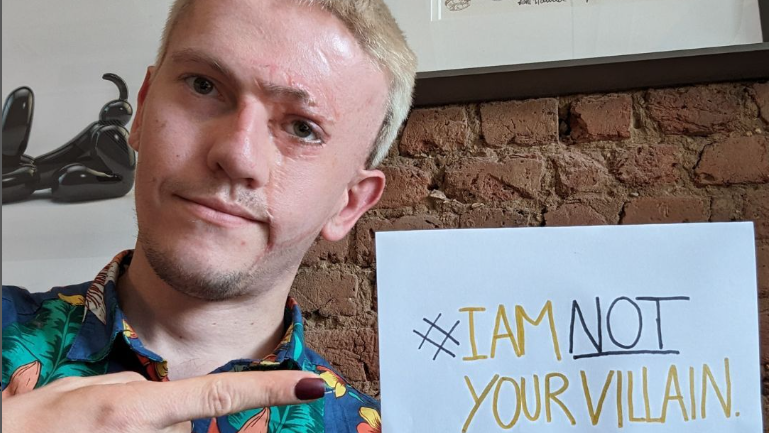Hit TV show actor corrects facial scarring language

Mr Rhodes played Silver Denys in the second season of popular HBO series House of the Dragon.
- Published
A London actor who starred in hit TV show House of the Dragon has called for better language for people with facial scarring.
Robert Rhodes from London said he had received comments on social media with some X users referring to his appearance as "deformed".
Mr Rhodes was born with a large facial birthmark as a result of congenital melanocytic nevus and was left with scarring following multiple surgeries to remove it as a child.
"I'm not incorrect, I'm not half-formed, I'm just little old me who happens to look a bit different', he said.
'Gives me the ick'
Speaking to BBC Radio London, Mr Rhodes said he considered it dated to refer to someone with a visible difference as deformed.
Following his appearance on House of the Dragon, Mr Rhodes said he was subjected to many memes and comments about his appearance.
"There was no malice in the comment that was posted but it's hard to see allyship when a word like that is used.
"It's one of those words that kind of gives me the ick, I think it gives a lot of people the ick" he added.
"The first thing you think of is this kind of alien creature."
Mr Rhodes was referring to a social media post on X which read: "That is his actual face which is deformed from a birthmark."
Allow Twitter content?
This article contains content provided by Twitter. We ask for your permission before anything is loaded, as they may be using cookies and other technologies. You may want to read Twitter’s cookie policy, external and privacy policy, external before accepting. To view this content choose ‘accept and continue’.
Mr Rhodes is also an ambassador for the charity Changing Faces UK, which aims to remove the stigma around visible differences and provide mental health and welfare support to those living with visible differences.
Speaking about his role for the charity, Mr Rhodes said he wanted to start open conversations.
"I think sometimes, because there's not enough representation of people who have a visible difference in the media, people have a sense of panic when they see it and they don't know how to act.
"Society has a backwards view of perfection that doesn't really exist," he added.
Mr Rhodes recently starred in Changing Faces UK's latest campaign video, called "I am not your villain".
The campaign calls on the film industry to stop using visible differences such as scars and burns as shorthand for villainy.
According to their website, the purpose of the campaign is "challenging the use of stereotypes, as well as championing positive representation of visible differences on screen".
Listen to the best of BBC Radio London on Sounds and follow BBC London on Facebook, external, X, external and Instagram, external. Send your story ideas to hello.bbclondon@bbc.co.uk, external